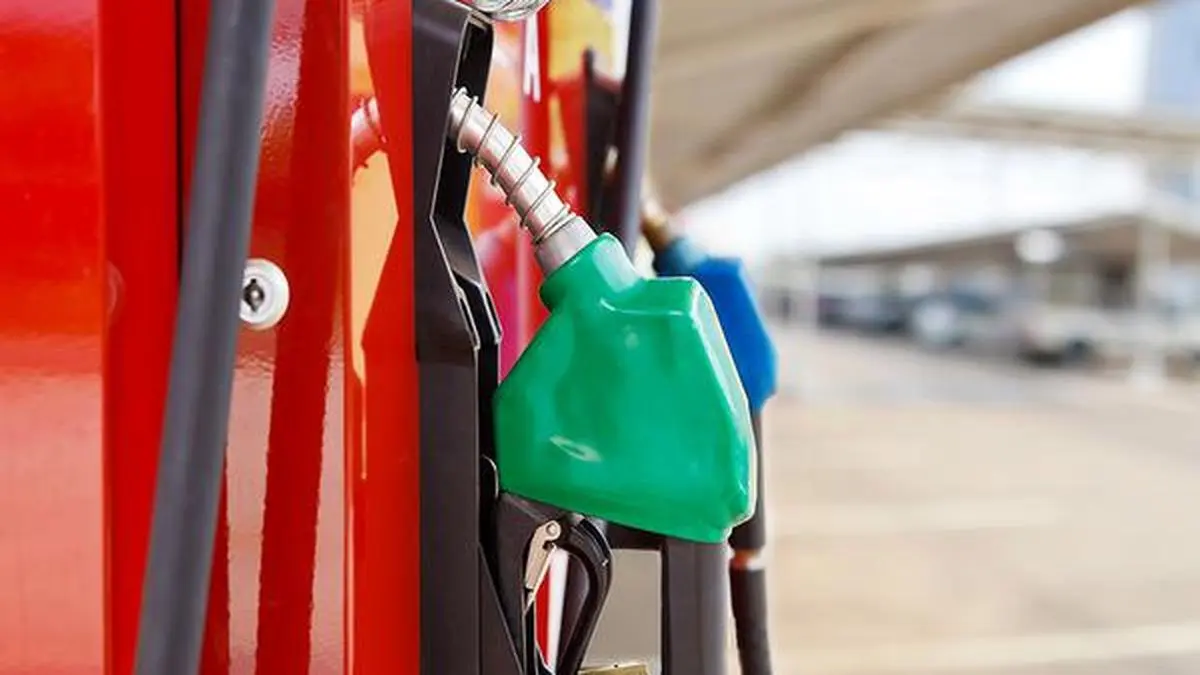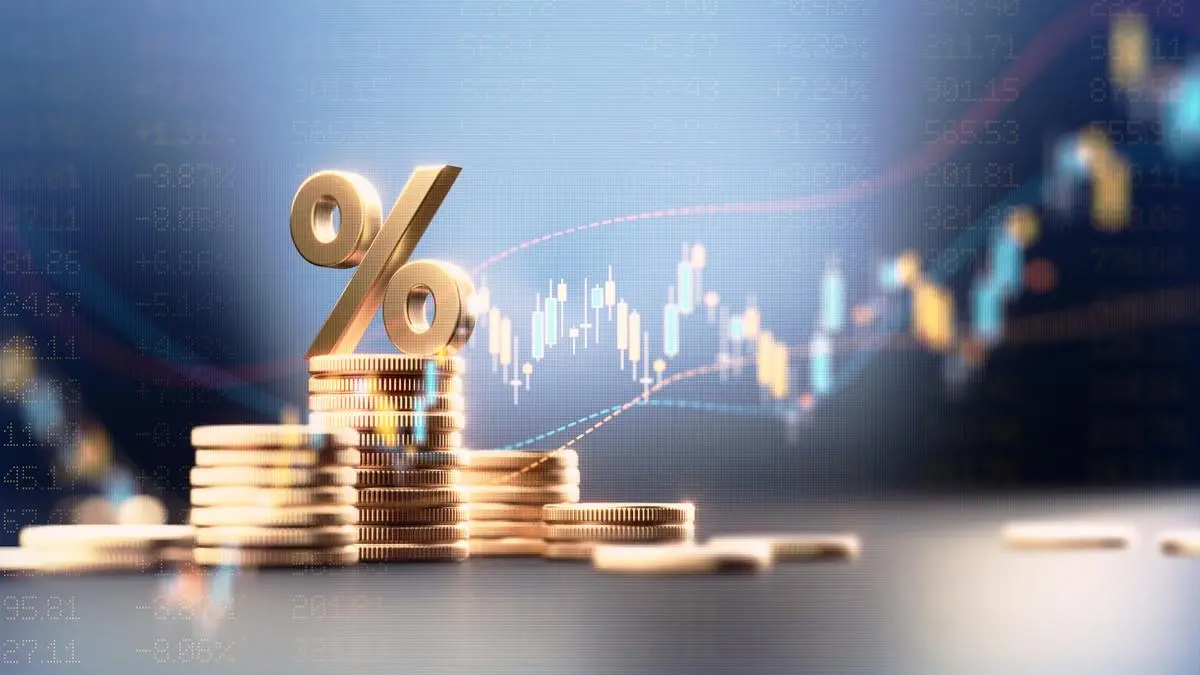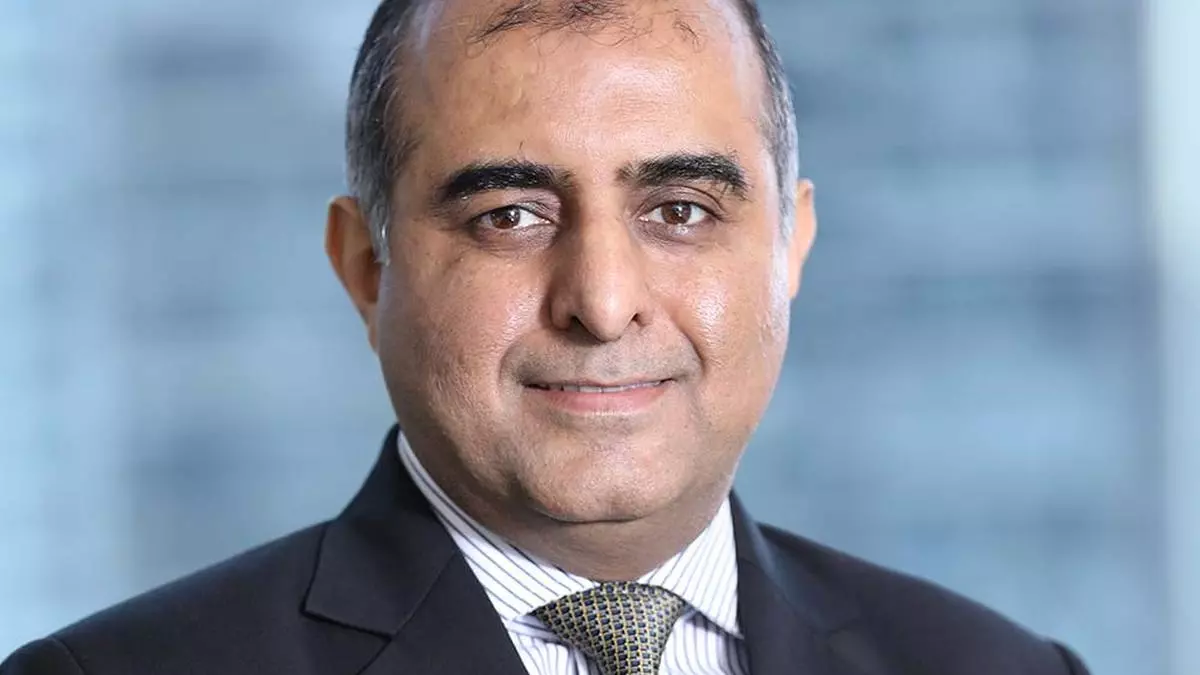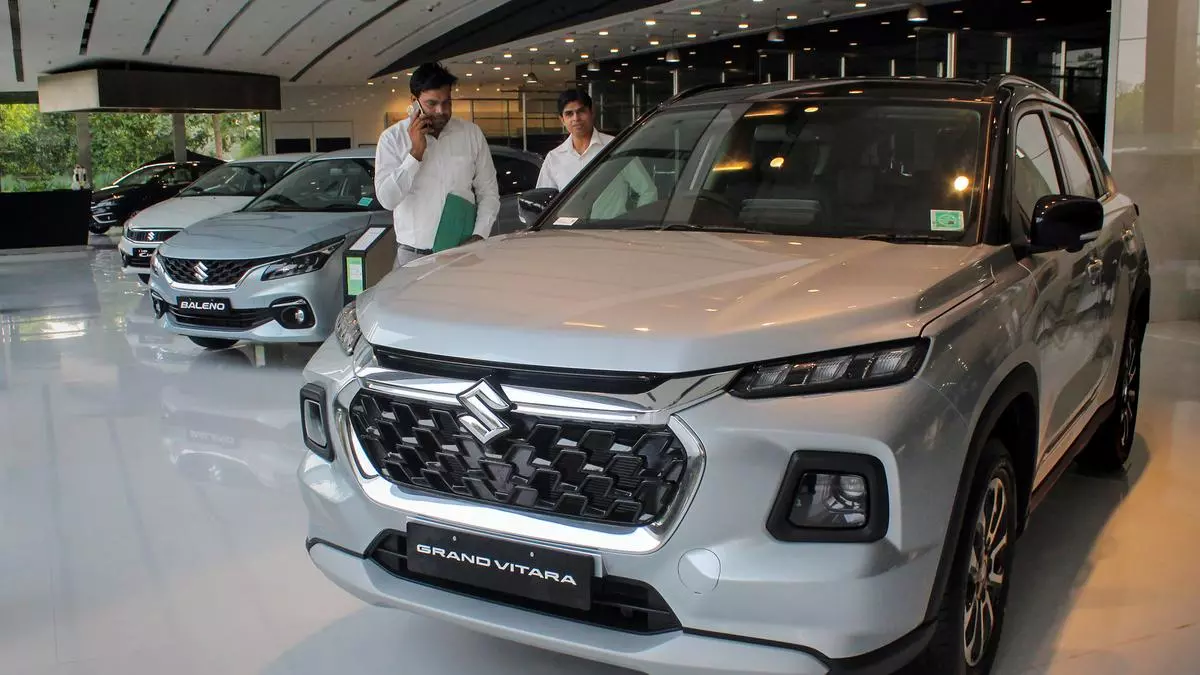Latest News
Draft EV Policy 2.0: In green push, Delhi plans to phase out non-electric 3-wheelers, 2-wheelers
Last Updated: Apr 09, 2025, 12:20:00 AM ISTDelhi's upcoming EV Policy 2.0 proposes phasing out CNG autorickshaws, with no new registrations after August 15th. Existing CNG permits won't be renewed, replaced by e-auto permits. The policy targets fossil fuel vehicles used for waste management and city buses, mandating a complete electric transition by 2027.
Pressure mounts on Govt for petrol, diesel price cut with Brent in free-fall
Updated - April 07, 2025 at 02:13 PM.Global crude oil prices continued their downward descent on Monday with Brent prices ruling at $63.23 per barrel in early afternoon (India time), a decline of over 3%
Fuel duties raised without retail price hike; LPG cylinder now costlier by ₹50
Updated - April 07, 2025 at 07:08 PM.The special additional excise duty on petrol and diesel has been raised by ₹2 each to ₹13 and ₹10, respectively, to offset global price drops and help recover oil PSU losses, potentially yielding ₹32,000 crore annually
Dividend receipts from CPSEs exceed revised estimates, surge to all-time high of nearly ₹66,000 cr
Updated - March 14, 2025 at 08:58 PM.Dividends declared by operating CPSEs in FY 2023-24 stood at ₹1.23 lakh crore against ₹1.05 lakh crore in FY 2022-23, showing an increase of over 16%
Oil Minister Hardeep Singh Puri hints at potential petrol, diesel price cut if global crude prices remain subdued
Last Updated: Mar 29, 2025, 06:04:00 PM ISTOil Minister Hardeep Singh Puri hinted at a potential reduction in petrol and diesel prices, contingent on global crude prices continuing to stay low. He mentioned that if crude prices remain subdued, consumers could reasonably expect a fuel price cut after a year-long hiatus.
Govt will continue to intervene in fuel pricing: Reliance-BP fuel retail CEO
Last Updated: Apr 03, 2025, 07:44:00 PM ISTReliance BP Mobility CEO Harish Mehta stated that the government will continue intervening in domestic fuel pricing to protect consumers from international market fluctuations. While petrol was deregulated in 2010 and diesel in 2014, recent events have disrupted this alignment.
Petrol sales up 5%, diesel 1% in March
Last Updated: Apr 01, 2025, 09:49:00 PM ISTPetrol, diesel, jet fuel, and LPG sales in March 2024 grew at a slower pace compared to the full year, with petrol seeing a 5.3% rise and diesel at 0.9%. Full year growth for petrol was 7.3% and 2% for diesel. Jet fuel and LPG also showed moderated increases.
Trump administration cancels clean energy grants as it prioritizes fossil fuels
Last Updated: Mar 29, 2025, 07:44:00 AM ISTPresident Trump's administration is terminating grants for two clean energy projects and reviewing roughly 300 others, prioritizing fossil fuels over renewable energy. The Department of Energy states the awards do not align with the administration's objectives, impacting efforts to reduce greenhouse gas emissions and transition to cleaner energy sources.
Bengaluru cost of living to jump! Milk, water, electricity and 'garbage tax' to burn bigger hole in pocket
Last Updated: Apr 01, 2025, 12:44:00 PM ISTResidents of Bengaluru face increased expenses as the new financial year begins, with prices rising for milk, waste management, metro fares, and bus tickets. The Congress-led state government and service providers cite rising operational costs. Milk prices rise by Rs 4 per litre, waste collection charges increase, and public transport fares see significant hikes, affecting daily commuters.
Auto companies push for easing of fuel efficiency norms
Last Updated: Mar 31, 2025, 12:05:00 AM ISTAutomakers are urging the government to relax new CAFE III fuel efficiency norms, set to begin in April 2027, due to the low penetration of electric vehicles. They argue current standards are too stringent without significant EV adoption and seek calculations based on the MIDC cycle.
Iraq agrees to supply Lebanon with fuel for six months
Last Updated: Mar 29, 2025, 09:50:00 PM ISTIraq will continue supplying Lebanon with fuel for another six months, according to a statement from Iraqi Prime Minister Mohammed Shia al-Sudani. This deal, initially made in July 2021, aims to mitigate Lebanon's severe power shortage. Lebanon exchanges the heavy fuel oil received from Iraq for gas oil, which powers its underperforming power stations.
India to become world's biggest electric vehicle manufacturer in the next 5 years: Nitin Gadkari
Last Updated: Apr 01, 2025, 04:03:00 PM ISTIndia is on track to lead the world in electric vehicle manufacturing by 2030. Union Minister Nitin Gadkari announced initiatives to boost alternative fuel vehicles. The Indian automobile industry has grown significantly. Falling lithium-ion battery costs and new innovations are driving demand. Infrastructure development, such as dedicated cycle tracks, will support this growth.
India can be great producer of SAF; the fuel can help reduce pollution: Airbus official
Last Updated: Mar 31, 2025, 06:05:00 PM ISTIndia has great potential to produce Sustainable Aviation Fuel (SAF) using available biomass waste and feedstocks like rice and wheat straws. Airbus is working with the Indian Institute of Petroleum to develop new SAF production methods. Policies and government support are vital for scaling production and making SAF more cost-competitive.
India on track to achieve 500 GW renewable energy target: Pralhad Joshi
Last Updated: Mar 27, 2025, 06:49:00 PM ISTIndia is on track to achieve its 500 GW renewable energy target by 2030, with Rs 32 lakh crore investment commitments. Union Minister Pralhad Joshi highlighted the progress, including 223 GW of non-fossil-fuel capacity. Renewable energy project bids cover 169 GW, and the government is supporting offshore wind projects with viability gap funding.
India needs to scale up non-fossil fuel capacity to 600 GW by 2030
Last Updated: Mar 13, 2025, 12:01:00 AM ISTIn October-November period, when the unmet demand will likely be high, and in the high-demand months of March to June, almost all the available coal capacity will be despatched, leaving little margin to manage uncertainties, the report said.
India's wholesale inflation likely fell to 2 pc in February from 2.3 pc in January: Report
Last Updated: Mar 12, 2025, 08:55:00 AM ISTIndia's WPI inflation is expected to drop to 2% in February 2025, down from 2.3% in January. The decline is driven by falling oil prices and a seasonal decrease in food prices, particularly vegetables. The fuel index is also expected to remain negative due to reduced oil demand.
American Airlines flight catches fire at Denver Airport gate, 12 passengers taken to hospital
Last Updated: Mar 14, 2025, 01:55:00 PM ISTAn American Airlines Flight 4012 caught fire at Denver International Airport, triggering the evacuation of passengers. No injuries were reported, and emergency crews quickly extinguished the fire. Video footage showed passengers exiting the aircraft and standing on its wing as flames engulfed the plane. While the cause remains unclear, this incident raises further concerns about aviation safety.
Ashwini Vaishnaw rebuts Kerala Congress allegations over power generation
Last Updated: Mar 11, 2025, 12:21:00 AM ISTUnion Minister Ashwini Vaishnaw refuted allegations by Kerala Congress, clarifying that India's 45% power generation capacity from non-fossil fuels differs from the energy generated figure. This distinction arose after an accusation of inaccuracy regarding the energy mix. Vaishnaw emphasized the difference and showcased current statistics, aiming for clarity on India's renewable energy progress.
US tanker and cargo ship collide off UK coast, sparking fires and environmental disaster fears
Last Updated: Mar 11, 2025, 07:46:00 PM ISTA US-linked tanker, Stena Immaculate, collided with the Solong container ship in the North Sea, causing fires and leaving one crew member missing. Authorities are investigating the matter while emergency teams work to contain potential oil spills. Experts warn of severe environmental risks if the jet fuel leak is not swiftly controlled.
India must charge up non-fossil fuel energy capacity to 600 GW by 2030 to avoid dimming lights: Report
Last Updated: Mar 12, 2025, 07:23:00 PM ISTIndia must increase its non-fossil fuel energy capacity to 600 GW by 2030 to meet rising electricity demand. Achieving this will prevent unmet demand and reduce reliance on coal. This pathway will also reduce costs, create jobs, and lower carbon emissions. The report highlights the need for renewable energy to meet India’s demand sustainably.
Ex Kearney India head Vikas Kaushal appointed as HPCL CMD
Updated - March 07, 2025 at 07:17 PM.He has also served as the Managing Director & Country Head for Kearney India for five years
Marginal impact on fuel efficiency of 4-wheelers due to E20
Updated - March 11, 2025 at 11:48 AM. |During the last ten years till ethanol supply year (ESY) 2023-24 (November-October), ethanol blending in petrol by PSU OMCs resulted in savings of more than ₹1.13 lakh crore of foreign exchange
Castrol India surges 10%, hits 5-month high on strong volumes
March 07, 2025Stock jumps 50% from January lows; Motilal Oswal maintains ‘Buy’ with Rs 260 target.
Nayara Energy to make buyback offer to minority shareholders
Last Updated: Mar 06, 2025, 02:12:00 PM ISTNayara Energy announced a buyback offer for its minority shareholders to purchase over 2.59 crore shares at Rs 731 each, providing an exit opportunity for shareholders unable to trade since delisting in 2016. This follows frequent shareholder requests for liquidity.
Tata Motors begins trials of hydrogen-powered heavy duty trucks for long haul transportation
Last Updated: Mar 04, 2025, 04:38:00 PM ISTTata Motors has begun trials for hydrogen-powered heavy-duty trucks to test their effectiveness for long-distance transportation. The 24-month trial includes 16 trucks equipped with Hydrogen Internal Combustion Engines and Fuel Cell technologies on major Indian freight routes. This initiative is part of the National Green Hydrogen Mission, aimed at reducing emissions and enhancing energy self-reliance.
India's renewable energy sector hit by weak demand, cancellations, report says
Last Updated: Mar 06, 2025, 04:23:00 PM ISTIndia's renewable energy sector grapples with low demand for tenders, delays in power agreements, and project cancellations, jeopardizing its 2030 target of 500 GW non-fossil power capacity. With unsigned agreements totaling over 40 GW and 38.3 GW of projects canceled from 2020 to 2024, investor confidence and low-cost financing are at risk, according to IEEFA.
ONGC unit buys clean energy firm PTC Energy for $106 mln
Last Updated: Mar 04, 2025, 09:33:00 PM ISTOil and Natural Gas Corp's unit has acquired clean energy firm PTC Energy for 9.25 billion rupees to expand its renewable energy portfolio. PTC Energy, with 288 MW of wind generation capacity, helps ONGC progress towards its aim of achieving 10 GW renewable energy capacity by 2030.
Jet fuel demand dips in February after record highs
Updated - March 02, 2025 at 01:25 PM. |Jet fuel consumption is expected to grow at almost 10 per cent annually in FY26
Oil gains after Trump cancels Chevron's Venezuela license
Last Updated: Feb 27, 2025, 09:21:00 AM ISTOil prices rebounded slightly after President Donald Trump reversed Chevron's license to operate in Venezuela, affecting a quarter of the country's oil exports. Market reactions were also influenced by potential U.S. Strategic Petroleum Reserve purchases amid ongoing Russian-Ukraine peace talks.
Big military fallout: Norwegian energy firm halts fuel supply to US Navy fleet amid Donald Trump and JD Vance clash with Zelensky
Last Updated: Mar 04, 2025, 12:23:00 AM ISTNorway-based Haltbakk Bunkers has stopped fueling US warships after a contentious meeting between Ukrainian President Zelensky, US President Trump, and US Vice President Vance. The company cited adherence to its moral values, having previously ceased business with Russian clients over the Ukraine invasion. Norway's government assured continued support for American military actions.























)





